

BANKING TOUCHES EVERYTHING
ERIEBANK President, Wesley Gillespie, discusses why everyone needs to have a rela onship with a community bank in 2025 and why every business in the Ohio, Pennsylvania region needs to have him on speed dial.
THE CODE M BEAUTY SUBSCRIBE HERE

LEAVE IT UP TO COXX
THESE BOOTS WERE MADE FOR WALKING









20 WHEN THE PARENTS MOVE IN
There are many reasons for parents moving in with their children – but is it the right thing to do?


40 BANKING TOUCHES EVERYTHING
ERIEBANK President, Wesley Gillespie, discusses why everyone needs to have a rela onship ON THE COVER with a community bank in 2025 and why every business in the Ohio, Pennsylvania region needs to have him on speed dial.
14 MOVERS AND SHAKERS
Get to know people who are making a difference in their careers and changing
the world!
17 MAN CODES Discipline.
18 THE PICTURE-PERFECT MINDSET
Sylven Lamar turned his hobby of taking photos into a thriving business. Now he takes photos of some of the county’s top businesses including, CODE M.
26 THE EFFECT OF BIRTH ORDER
Being born first, second, or third can impact how you were raised, and thus behave. Here is what the experts say about the link between birth order and personality.
32 WHEN MUSIC MAKES A DIFFERENCE
Cleveland rapper, Krayzie Bone, uses his fame and talent to pay it forward to save the lives of young people using music through his non-profit, Spread the Love Founda on.
38 THE CODE M BEAUTY
CODE M celebrates women by showcasing and highligh ng them every issue in the magazine. Get to know the women who are thriving today.
48 THE ART OF BORROWING MONEY
At one point, or another, everyone has been there. Follow these steps if you find yourself a li le short on cash and need to

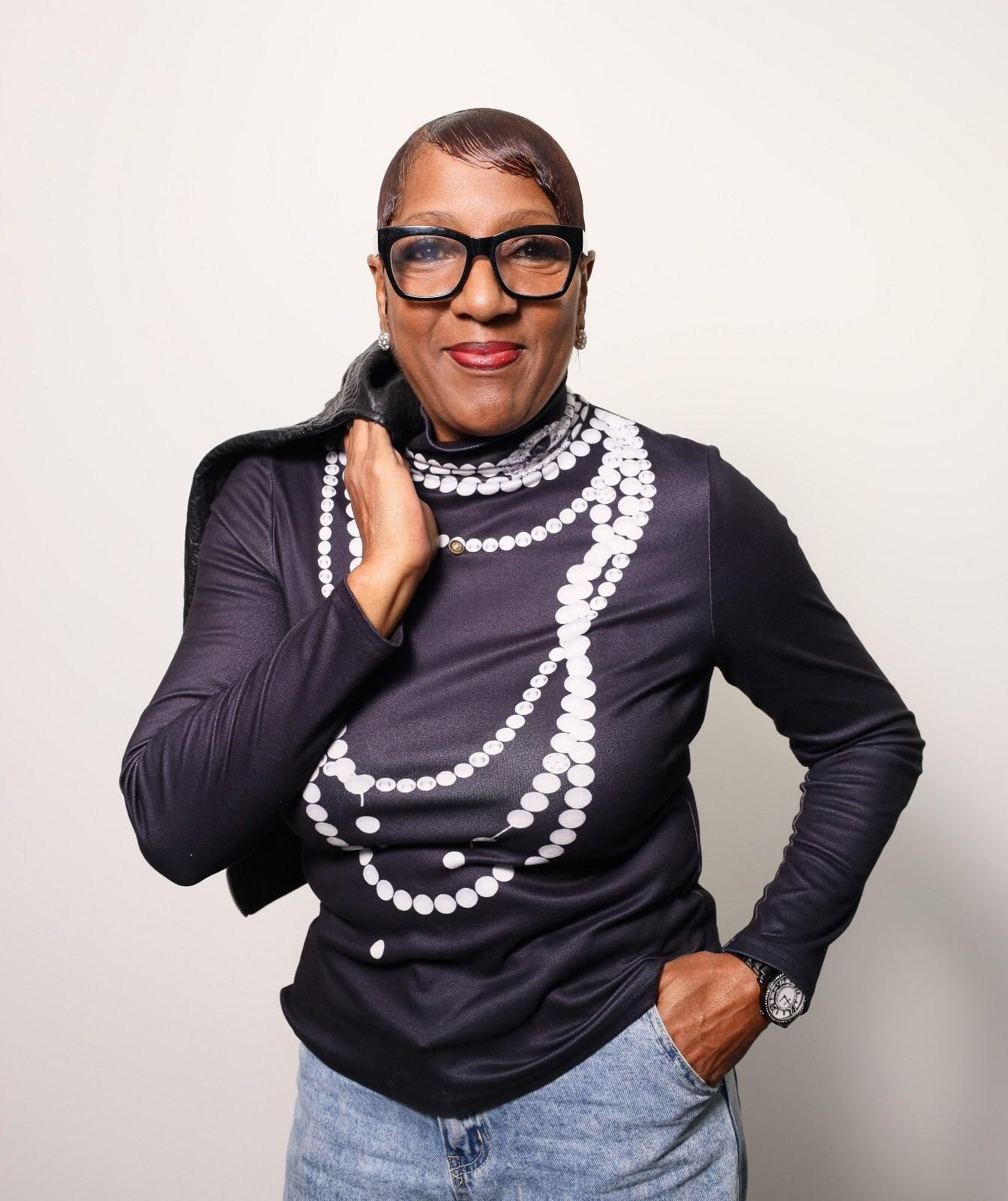
WISDOM IS THE PRINCIPLE
Sharon Murphy Williams has been teaching the art of mastering credit literacy to those who need it for 25 years through the Phe’bes Founda on. In 2025, the founda on is set to impact those who need financial help on a whole new level.
ask to borrow money.
51 THE TRUTH UNSEALED
Mark Greene discusses what it takes to become a Navy Seal and the techniques that can be used in everyday life.
56 TRADING UP TO TECH
Many perceive “tech” as simply computer systems and so ware design. However, there is also tech in the skilled trade industry.
62 CELEBRATING THE DIVINE 9
Get to know people who are making a difference in their organiza ons and in their careers.
67 LEAVE IT UP TO COXX
Atlanta recording ar st Ms. Coxx storms on the scene with her cul va ng lyrics and sensa onal stage presence.
68 THESE BOOTS WERE MADE FOR WALKING
When the weather is less than perfect, what you have on your feet can keep you dry and make a fashion statement at the same me.




PUBLISHER/CEO
Bilal S. Akram
PRESIDENT
Brad J. Bowling
SENIOR ADVISOR
Alexandria Johnson Boone
MANAGING EDITOR
David Christel
CHIEF OF STAFF
Anita G. Butler
PAGE EDITORS
Laron Harlem-Fashion Editor
Paris Lampkins-Movers & Shakers Editor
Randall Sylvertooth-Tech Editor
Juan Toney-Health Editor
GRAPHIC DESIGN
S ff Arm Media
MEDIA COORDINATOR
Carole Anthony
EXECUTIVE ASSISTANT
To the PUBLISHER
Ladonna “Lala” Dicks
ENGINEER RADIO/PODCAST
Chris “DJ Krystyle” Westbrook
SOCIAL MEDIA
Rachel Woods
IT CONSULTANT
Anthony Jones
Digital Jetstream, LLC
CONTRIBUTING WRITERS
David Christel
Leslie Logan
Brad J. Bowling
Bilal S. Akram
Laron Harlem
Bolling Smith
Chris Ma hews
William Shambley
Randall Sylvertooth
Harold Commons
Juan Toney CODE

STAFF
Sharif Akram
Darrell Sco

To submit comments, feedback or to inquire about adver sing please contact us at
info@codemediagroupllc.com



SHAKERS
DIANA D. JONES
Diana Jones is a Business Development Specialist with the Greater Cleveland Regional Transit Authority. Jones cer fies firms as a Disad‐vantaged Business Enterprise (DBE) for the Ohio Unified Cer fica on Program. Her career spans over 25 years including service with a trans‐porta on, regional u lity, non-profit, and financial banking ins tu on. Ms. Jones ac vely seeks firms to increase vendor par cipa on on pub‐lic bids and direct contracts.
She is very well known for her engaging personality and desire to assist clients at every step. She serves as an ambassador of GCRTA and en‐
Get to know people who are making a difference in their careers and changing the world! by Paris Lampkins
sures par es adhere to the business protocols rela ve to cer fica on. Jones has hosted numerous cer fica on clinics along with community outreach events.
Jones earned a Master of Public Administra on and obtained a Bache‐lor of Science degree in Business Administra on/Marke ng from the University of Akron. She also received an ACCA Cer fica on as an Execu ve Cer fied Master Compliance Administrator (ECMCA) through Morgan State University.

XAVIERA PATRICK
Xaviera Patrick, a na ve of Atlanta, Georgia, a ended Grambling State University, where she met and married the love of her life, Eric Patrick. Married for 27 years, Xaviera relocated to Cleveland, Ohio, where they raised their two children, Chase and Shanna, along with their cherished dog, Teagan.
She is an ac ve member of Delta Sigma Theta Sorority, Inc. and The Links, Incorporated, serving as Recording Secretary in both organiza‐ons. Her passion for the arts, par cularly film, inspired her to volun‐teer with the Cleveland Interna onal Film Fes val and serve as a board member of the Greater Cleveland Urban Film Fes val’s marke ng com‐mi ee. Xaviera also owns Charm Your Way, an e que e consul ng company teaching lifelong skills.
DYLAN L. SELLERS

Cleveland na ve Dylan L. Sellers lives a life of purpose as both Pastor of Purpose Community Church and a dedicated communi‐ty ac vist. Since his ordina on in 2020, he's been leading his house church while figh ng for social jus ce and equality in mar‐ginalized communi es. As Na onal HBCU Director for Fair Elec‐on Center's Legacy Ini a ve, he champions student civic en‐gagement across historically Black ins tu ons.
A proud Kent State graduate with a degree in Pan-African Stud‐ies, Dylan draws strength from his marriage to Sharmayne Free‐man-Sellers in 2014. His unwavering commitment to jus ce and spiritual growth con nues to inspire those around him.



JOHN SHARPE
John Sharpe is a skilled sales and marke ng professional based in Greater Cleveland. A Cleveland Heights na ve, he earned his BA and MBA from Baldwin Wallace University. With exper se spanning accoun ng, finance, banking, client services, marke ng, and sales, he has excelled as both an individual contributor and team leader. Currently, he serves as Sales Exec‐u ve at Kuno Crea ve, a digital marke ng agency
He lives in Lakewood, Ohio, with his wife and four daughters and ac vely par cipates in Alpha Phi Alpha Fraternity Inc., the College Now Mentor‐ship program, and his church, and co-hosts the “at the office cle” podcast in his spare me.




MAN CODES: DISCIPLINE
“The more self-discipline you have, the more you do the things you should do, the happier your future self will be.”
- Maxime Lagacé
“We must all suffer from one of two pains: the pain of discipline or the pain of regret. The difference is discipline weighs ounces while regret weighs tons.” - Jim Rohn
“Most people don’t have a talent problem. They have a con‐sistency problem.” - Nicolas Cole
“Day by day, what you choose, what you think, and what you do is who you become.” - Heraclitus
“It's a lot more than mind over ma er. It takes relentless selfdiscipline to schedule suffering into your day, every day.” - David Goggins
“Discipline is being able to force yourself to do something in
Compiled by Bilal S. Akram
spite of how you feel, over and over un l it becomes a habit.” - Kim Brenneman
“If you don’t teach your child discipline, you are preparing him poorly for life.” - Bethany Bridges
“The ability to discipline yourself to delay gra fica on in the short term in order to enjoy greater rewards in the long term is the indispensable prerequisite for success.” - Brian Tracy
“Your first blog post will be bad, but your 1000th will be great. Your first workout will be weak, but your 1000th will be strong. Your first medita on will be sca ered, but your 1000th will be focused. Put in your reps.” - James Clear Hebrews 12:11 No discipline seems pleasant at the me, but painful. Later on, however, it produces a harvest of righteousness and peace for those who have been trained by it. (NIV)

THE PICTURE PERFECT MINDSET
Sylven Lamar turned his hobby of taking photos into a thriving business. Now he takes photos of some of the county’s top businesses including, CODE M.
By LESLIE LOGAN
At one point or another, everyone has thought about turning their hobby into a career. But do‐ing so requires some risk, some guts, and some talent. Luckily, for Sylven Lamar, he has all three.
Lamar has always had a passion for taking pic‐tures. In 2007 he went to DODD Camera picked up a NIKON D40 and started playing with taking different types of pictures. A er a couple of years of learning the art of photography, he decided to turn it into a career.
“It got to the point where so many people were asking me to take their photos, that I decided to start charging for it and I turned my hobby into a business,” Lamar said.
And business has been good. Lamar has experience taking photos in a wide range of areas including:
• Gradua on
• Wedding
• Modeling
• Corporate
• Staged scenes
• Principle photography for films

•
CODE M reached out to him, and he has been the director of photography for the magazine since 2022. He has taken most of the cover photos for the magazine and shoots on loca on when the company has events or conferences.
“There’s nothing like working in a field where you get to create and invent. No day is ever the same and I really enjoy ge ng to meet all the wonderful people that I have the pleasure of work‐ing with,” Lamar said.
His primary business is taking senior portraits and maternity photos. He also does real estate photos for all the realtors in the area.
“With me being able to take photos for so many different types of businesses and people, I had to purchase the right equip‐ment to become as mobile as possible.”
Lamar will o en bring the set to the loca on. He has the ability to create the right ligh ng whenever needed and he can also create meaningful backdrops at his studio located in Cleveland Heights.
“I got the studio so I can create the right backgrounds and ligh ng when needed. I have clients that come to me, and we’re able to take their ideas and bring them to life using the studio,” Lamar explained.
In his spare me Lamar has become a green thumb by grow‐ing his own food in his own garden. The love for growing his own food has led Lamar on a fitness journey to get healthier and stay in shape.
“I really want to help people to understand that they can be‐come healthy if they grow and eat foods from their own gar‐den,” Lamar said.
His wide range of areas that he focuses on has allowed him the lifestyle to spend quality me with his kids.
The father of three is crea ng memories for his own family and for his clients by capturing them at their best and bright‐est. And that’s a picture-perfect scenario! ●


CLE STRONG
These images were all taken by Lamar for various opportuni es around the country.










WHEN THE PARENTS MOVE IN
There are many reasons for parents moving in with their children – but is it the right thing to do?

Wri en by DAVID CHRISTEL
David has been ghostwri ng books for well-known people since 1995. He is also the author of Married Men Coming Out: The Ul mate Guide to Becoming the Man You Were Born to Be.




The nuclear family has for decades been the subject of much discussion. What exactly is a “nuclear family,” what are its opera onal dynamics, and do the pros out‐weigh the cons?
To answer the first ques on, a nuclear family is what psychologists and sociologists consider the “basic uni‐versal form of family structure,” which consists of a husband, wife, and children. It may also include grandparents all living under the same roof. Depending on circumstances, aunts, uncles, and extended family members might also be included.
Though the term was first used in 1924, the concept has been around since humans first appeared. In terms of func onality, this arrangement provided connec on, safety, the sharing of responsi‐bili es and tasks, and the maintaining of family (and tribe) cohe‐sion. But is that the story today?
The Pew Research Center reports that nearly 60 million Americans now reside in households of two or more genera ons of adults. In 1971, that number was 14.5 million that’s an amazing increase in just fi y years. In that me, the idea of a nuclear family has gone through some interes ng permuta ons to what is now referred to as “alterna ve family arrangements,” such as same-sex parents, single-parent households, unmarried couples with children cohabi‐ta ng, stay-at-home fathers, and more.
But even as the nuclear family landscape has adapted to shi ing social trends and conven ons, the dynamics have pre y much stayed the same for the simple reason that humans are humans and they come with a host of issues, agendas, opinions, beliefs, and wants and needs. As we’re all aware, families are the ground zero of tes ng out emo onal narra ves, iden ty building, and individu‐a on, and pushing the envelope. It’s quite the stewpot ins ga ng a rollercoaster of highs and lows, disrup on and chaos, and mes of togetherness and deep connec on.
Whatever the family arrangement, its opera onal structure is de‐pendent on the emo onal needs of everyone in the household and whether those needs are being met or not. In any family, that can put a good deal of strain on one’s emo onal stability, the living arrangement sustainability, and one’s long-term health. If parents move in, the living situa on can be either enhanced or ruinous.
O en mes, the moving in of elder parents with their children re‐volves around the elder parents’ aging and possibly dwindling fi‐nances. When this happens, the dynamic of elder parents caring for their children, now parents in their own right, is reversed. Par‐ents are now tasked with raising and caring for their own children, while at the same me a ending to the wellbeing of their older parents.
If the elder parents are in physical or mental ill health, the strain on
the parents as caretakers can be considerable. If any of the children are also dealing with physical, emo onal, or men‐tal challenges, that will contribute to the en re family be‐ing nega vely affected.
True, many elder parents are able to contribute to the wel‐fare of the family from caring for grandchildren to even sharing some of the financial burden. But there are a host of poten al points of disagreement and fric on that can cause a lot of discord in the family and can create what is referred to as “mul genera onal madness.” This “madness” is brought about by a number of issues:
• Too much togetherness and not enough personal space and “me me.”
• Unsolicited elder parental advice on any subject, but most specifically differences about child rearing and family finances.
• The household is too o en in a state of disorder and messiness.
• Elder parents’ interior home design ideas clash with the parents’ desires.
• More than one language is spoken at home and the chil‐dren don’t speak the language of their grandparents.
• Constant noise and not enough periods of quiet or desig‐nated quiet spaces.
• Conflic ng smells from cologne to cooking, scented can‐dles, incense, etc.
• Elder parents aren’t up to date on household technologi‐cal advances.
• The mother is usually the only person trying to keep the household clean and ordered.
• With physically compromised elderly parents, the house isn’t designed for their needs and safety.
• Too many cooks in the kitchen can lead to conflicts and resentment.
• Family members have to move out of their bedrooms and common spaces in order to accommodate elder parents’ physical needs.
• The home is small with only one bathroom.
All of these impact family members’ emo onal wellbeing and ability to cohabitate harmoniously. The decision to have parents move in with grown children requires a lot of though ul planning and the acknowledging of poten al drawbacks. That includes taking into account family issues of any kind, as well as any family trauma that might have occurred. Avoiding either of these o en leads to eventual blowups, heartache, further tension and stress, melt‐downs, and burnout.

The flipside of all the aforemen oned challenges are the benefits of a mul genera onal household that can bring a family even closer by crea ng an environment of mutual support, considera on, ap‐precia on, respect, and family harmony.
Probably the most notable benefit is that having mul ple genera‐ons in one household gives children and youth a greater perspec‐ve on life. Learning about the lived experiences of their grandpar‐ents helps younger people see life from different perspec ves, as well as learn about family history and social and world events that occurred before they were born.
Another important benefit is the elder wisdom grandparents can impart and some mes, younger people find they can share their thoughts and feelings more easily with a grandparent than they can their parents. At the same me, kids may be more willing to listen to a grandparent’s adult advice. Addi onally, grandparents o en don’t put the demands and stressors on their grandchildren that the parents do, thereby making them not an adversary but possibly an ally.
In this process, youth can gain a greater level of empathy and re‐spect for not only their grandparents, but also other adults. Grand‐parents may have struggles in which younger people can be of aid from helping with walking to doing things around the house, dress‐ing, ge ng in and out of cars, help with shopping, playing games, etc.
Something grandparents can share with grandchildren is more about their ancestral culture, tradi ons, and celebra ons. If the grandkids only speak English, then grandparents can be instrumen‐tal in helping them become bilingual. In all of this, young people have the opportunity to learn to live with more than just their par‐ents and any siblings and to also not be caught up so in their own li le world, which these days means being glued to their phones.
Grandparents can in return help with household chores, babysi ng,

running errands, playing chauffeur to their grandchildren’s ac vi es, and contribute to family financial needs. As a whole family group, everyone gets to be involved in cele‐bra ng milestones, crea ng greater flexibility and under‐standing in family dynamics, and bonding with each other more meaningfully.
Something else that can be capitalized upon is the values passed down from genera on to genera on, such as com‐passion, generosity, honesty, authen city, reciprocity, con‐sidera on, respect, integrity, morality, inclusivity, cultural awareness, interconnectedness, humor, being of service, and the power of self-reflec on.
So, mul genera onal “madness” can be refashioned into mul genera onal “magic.” A significant component in this transforma on is the establishment of family tradi ons. Researchers have found that family tradi ons are very in‐strumental in early child development. They have found that tradi ons help:
• Build emo onal security – young children need a sense of family stability through predictability and safety. This can be as simple as celebra ng birthdays and holidays to estab‐lishing Tuesday dinner is always Taco Tuesday and Friday is always pizza to kick off the weekend.
• Build a sense of iden ty – children develop their iden ty through knowing their cultural background, which gives them a sense of family origins, historical perspec ve, and their placement in the world.
• Build stronger family bonds – beyond the building of memories, family members who are involved in tradi ons and events help the family create more meaningful, trus ng, loving bonds and togetherness.
Addi onal benefits include building social and cogni ve skills, understanding and respec ng cultural roots and mul‐culturalism, and learning life and coping skills.
In this regard, as was queried at the beginning of this ar ‐cle whether the pros outweigh the cons, the answer is a definite “yes!” So if becoming a mul genera onal family is on the horizon, there will be challenges, but the benefits to all family members are many and deeply rewarding and enriching. Everyone has something to contribute and when given the chance to shine, everyone wins! ●
Grandparents live longer when they are around young people.



THE EFFECT OF BIRTH ORDER
Being born first, second, or third can impact how you were raised, and thus behave. Here is what the experts say about the link between birth order and personality.



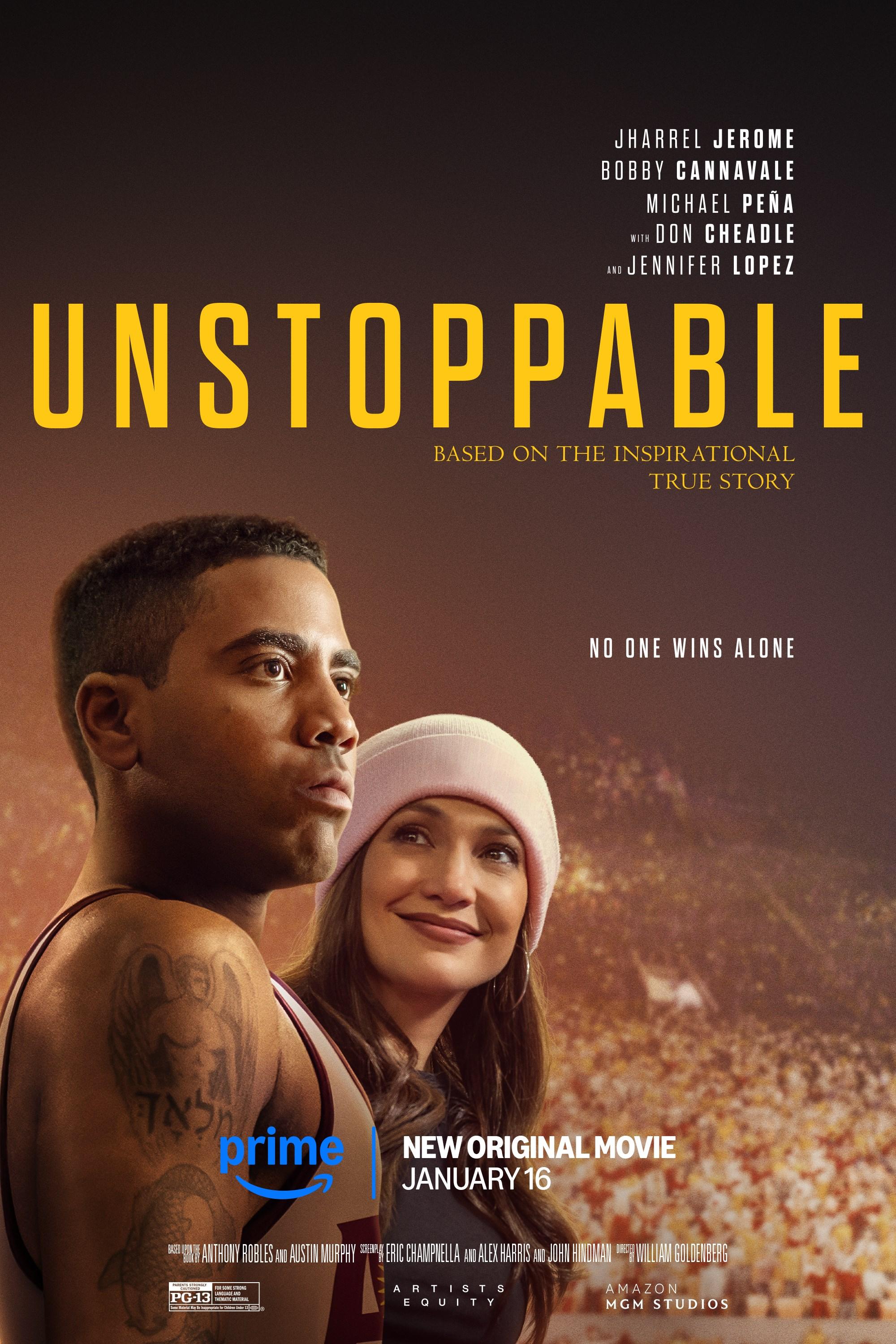

There’s no doubt about it, being born in a certain order can impact how you are raised and thus also impact your personality development. Families that have mul‐ple children all experience the various types of li le people that eventually turn into adults. Even children with no siblings develop a certain personality trait. Here are the trends that come with birth placement and what parents comment about their children’s personali es.
FIRST BORN CHILD
For new parents, the first-born children are the most precious. Not only because they are the first, but novice parents o en will protect the first child more because of a fear of the unknown cou‐pled with the lack of knowledge that comes with being first- me parents. O en, new parents will make it up as they go along be‐cause they don’t have a complete understanding of how to raise a child.
Firstborns tend to bask in their parents’ presence, which may ex‐plain why they some mes act like mini-adults. They are also prone to being diligent and wan ng to excel at everything they do. As the leader of the pack, firstborns o en tend to be:
• More respec ul
• More reliable
• Have a more structured life
• Can be controlling
• Some mes more organized
Since firstborns have their parents to themselves before siblings arrive, they’re accustomed to being the center of a en on. They get everything first and they begin to expect that to con nue as more children join the family. They also can develop a bigger bond with the grandparents when they’re the firstborn.
Because firstborns don’t have an exam‐ple to follow, they’ll take risks, venture out on their own more quickly, and ac‐complish tasks and goals at a higher rate than their siblings.
There is a price to pay some mes for firstborn children. They might take on a superiority complex with the rest of the siblings because they’re overachievers and expect royalty treatment from oth‐ers. They can also be inflexible some‐mes with society when they don’t get
their way.
Because firstborns are given more responsibility at an early age, they can some mes be demanding of their siblings. Firstborns serve as the babysi er for the family and their parents will o en ask them to do things before they’ve matured. That burden can lead to excess stress that con n‐ues into adulthood if they’re not careful.
SECOND BORN OR MIDDLE CHILD
When the second child is born, the parents some mes will have less than an iron fist when it comes to protec ng them and have lower expecta ons. By this me, the par‐ents understand the development of a child and thus ex‐pect the second child to fall in line with their own develop‐ment as a child.
The second child might get less a en on since there are children in the house. Therefore, the middle child is o en a people-pleaser due to the lack of a en on they get com‐pared to older and younger siblings.
The second child might also have it easier than the first. Because they have an example of what to expect from the firstborn, they can adjust quickly to the ever-changing world that comes with growing up. They saw their older siblings go to school, do homework, play sports, be in a play, and interact with others.
The second or middle child might have to work for a en‐on from the outside world because they are sandwiched between the responsible older sibling and the cute baby sibling behind them. Some mes, the second-born or mid‐dle child can feel le out if they don’t feel like they belong. In general, middle children tend to possess the following
Birth order can determine how kids engage with life as they grow up.


birth order personality traits:
• People-pleasers
• Somewhat rebellious
• Thrive on friendships
• Have a large social circle
• Peacemaker
Once a new baby is born, the secondborn must learn how to con‐stantly nego ate and compromise to be heard or fit in. Those born as the second child also can be quite serious about life. They are more reserved than the prideful firstborn and aloof last-born child.
YOUNGEST OR LAST-BORN CHILD
Babies of the family tend to be the most free-spirited due to their parents’ increasingly laissez-faire a tude toward paren ng the second (or third, fourth, or fi h) me around. As a result, the baby of the family tends to have the following birth order traits:
• Fun-loving or silly
• Uncomplicated
• Manipula ve
• Outgoing
• A en on-seeking
• Self-centered
Since parents generally don’t have their eyes as glued to the baby as their firstborn, the youngest sibling might develop their own ways of gaining a en on. They tend to be natural charmers with outgoing, social personali es; no surprise then that many famous actors and comedians are the babies of their families.
The youngest also make a play for the spotlight with their adven‐turousness. Therefore, free-spirited, the last-born may be more
open to unconven onal experiences and physical risks than their siblings.
There is no doubt the child born last is always the one to cause the most stress for the parent. Their personality de‐velopment comes with ge ng away with the most or be‐ing allowed to do the most during their upbringing. This could happen due to the parents ge ng older or having an understanding that the fears that came with raising the firstborn diminished as they began to raise the last child.
THE ONLY CHILD
Being an only child is a unique posi on. Without any sib‐lings to compete with, the only child monopolizes their parents’ a en on and resources not just for a short me like a firstborn, but forever.
Kids who don’t have siblings will o en feel alone during their journey in life. Their parents will a empt to help them create meaningful rela onships with other kids or families so the only child will feel included, but some mes that a empt will fall short as the only child becomes an adult.
Children with no siblings will some mes be overwhelmed with the a en on of their parents. They can some mes pull away or feel like they need their space with so much a en on and expecta on placed on them.
In addi on, only children have the privilege (and the bur‐den) of having all their parents’ support and expecta ons on their shoulders. Thus, only children tend to be:
• Mature for their age
• Perfec onists

Conscien ous
Diligent
Leaders
Kids with no siblings will o en grow up and seek to have more than one child. Because they understand the loneli‐ness that they went through, they will make sure that if they do have children, those kids have the siblings they never had.
s incredible to think that where you are born in the lineup of kids impacts your personal development. The truth is that those factors, plus a ton of others, help shape and ul mately define who kids become as they grow up. No ma er the order, all kids are a blessing indeed. ●
Parents who have mul ple children treat each one differently based on their birth order.



WHEN MUSIC MAKES A DIFFERENCE
Cleveland rapper, Krayzie Bone, uses his fame and talent to pay it forward to save the lives of young people using music through his non-profit, Spread the Love Founda on.
By BOLLING SMITH
When the world-famous rapper Krayzie Bone came home to Cleveland in 2019, he no ced that the city he loves was somewhat in decline. He decided to do something about it to see if he could help make a difference for at-risk youth using music to change the lives of young people.
Anthony Henderson, whose stage name is Krayzie Bone, rose to fame with the rap group, Bone Thugs-nHarmony.
Bone Thugs-n-Harmony, composed of rappers Bizzy Bone, Wish Bone, Layzie Bone, Krayzie Bone, and Flesh-n-Bone formed in 1991 in Cleveland, Ohio. The group signed with fellow rapper Eazy-E’s Ruthless Records in late 1993, on which they debuted with their EP Creepin on ah Come Up the next year.
The EP included their breakout hit single Thuggish Ruggish Bone. In 1995 the group released its second album E. 1999 Eternal, which included hits 1st of tha Month and East 1999. Their hit song Tha Crossroads, a tribute to then-recently deceased mentor Eazy-E, won a Grammy in 1997.





From the group's success, Krayzie Bone went on to create several solo projects and con nued to make music into the 2000s. While making music, Bone never forgot where he came from and con‐nued to champion the city he loved.
“When I came home, I no ced that there was a need to help the kids in the area. So, I started an organiza on that would help atrisk youth, using music, as a way to get back and stay on track,” Bone said.
That organiza on, Spread the Love Founda on, works with kids who are in trouble in school or with the law and provides them with a founda on to improve themselves using music as a guide for a be er life.
Bone serves as the chairman and CEO of the founda on and in‐vests his financial and personal me with the kids to ensure that they have a be er outcome.
“Back when we were younger, as ar sts, we didn’t have the me or knowledge to give back,” Bone said. “However, now that I have kids, and I understand what it means to have the proper support systems, I wanted to create a new way out for those kids who are struggling today.”
His efforts are paying off. Bone recently visited second and third graders for story me at Franklin D. Roosevelt Academy, a school in Cleveland, Ohio, to read and spend me with them.
The special occasion centered around Bone reading to the kids for story me and he gave out books to about twenty-five stu‐dents. Krayzie Bone’s vision is to spark the career interests of the kids by providing a launchpad for ar sts in Cleveland and helping Cleveland Metropolitan School District students gain insight into various career paths within urban arts and entertainment.
“I have a lot of memories here; I don’t want those memories to disappear. So, I started calling people together and decided that I wanted to do something for the city,” Bone said.
And he’s doing just that. Bone Thugs-n-Harmony celebrated three decades of iconic music at the House of Blues Cleveland for their 30th Anniversary Recogni on VIP Recep on, a once-in-alife me opportunity to honor the legendary group’s milestone.
During the celebra on, Bone introduced his third class of graduates from his diversion program. The kids were intro‐duced and rewarded for their efforts to change their lives for the be er by using music to create a be er future for them‐selves.
But Bone doesn’t want to just help them, he wants to be an asset to them as they embark on their own music careers.
“I also wanted to teach younger ar sts the business. The mu‐sic business can be pre y lopsided and I wanted to give any young aspiring ar st some knowledge so that they can go into the business with a li le awareness that these corporate gi‐ants try to push on us when we’re young and know nothing about it,” Bone explained.
Bone and the music industry have seen so much change in the
Phillip Weeden has an audiKrayzie Bone enjoys giving back to his community in Cleveland, Ohio.


last thirty years. When Bone Thugs n Harmony was popular, you needed a record label to help get your music launched and heard on the radio. Today, with the internet and social media, ar sts can push their own music out and make it on their own.
“You see how these influencers and these kids become famous overnight. If you have good music and you s ck to it, you don’t need a record label,” Bone said.
Bone warns about the traps of taking a large recording contract. He explains that the money used to create and promote an ar st is not theirs. That money needs to be paid back before the ar st can see a dime. He’s using his experience and intellect to not only change lives but create a whole new genera on of ar sts. What Bone never expected was the impact that helping others would have on him. Bone Thugs-n-Harmony’s music is meless and the impact that the group has on society has been incredible. When Bone decided to start his non-profit, he never expected to get back as much as he was giving.
Today, the group’s music is enjoying a rebirth. TikTok and Insta‐gram Reels are using their pla orms to spread the group’s music all over social media and the internet, rekindling a love affair with
the group. Star ng in 2025, the group is going to embark on their first world tour giving fans all over a taste of what made them famous over thirty years ago.
“Man, it’s amazing to see this younger genera on now discovering our music. They like it, they have all kinds of videos with it, we love it,” Bone said. “It’s wonderful for the music to be meless and we feel lucky to be blessed to have so many people s ll appreciate us as a group.”
Bone Thugs-n-Harmony’s music was special because the music had edge but it was clean. They didn’t create offen‐sive music for women, they didn’t rap about violence and murder. The music showered its listeners with incredible beats and rhythms that made people dance and sing along.
Krayzie Bone is doing what he promised. He’s making a difference in his community and saving the world one beat at a me. ●








ASHLEY MARCHETTE
Ashley Marche e is a spiritual woman who puts her faith in GOD, is a dedicated mom, and a passionate business owner.
“My clients' well-being is my priority, and I love guiding them on their fitness journeys,” said the owner of Norka-Fitness, a fitness gym in Shaker Heights, Ohio.
When work and family life get hec c, she finds peace through medita on, travel, and her faith.
“There's nothing more grounding than si ng by the ocean and feeling connected to something bigger than myself,” Marche e said.
Ashley’s IG (Norka_fit88)


BANKING TOUCHES EVERYTHING
ERIEBANK President, Wesley Gillespie, discusses why everyone needs to have a rela onship with a community bank in 2025 and why every business in the Ohio, Pennsylvania region needs to have him on speed dial.
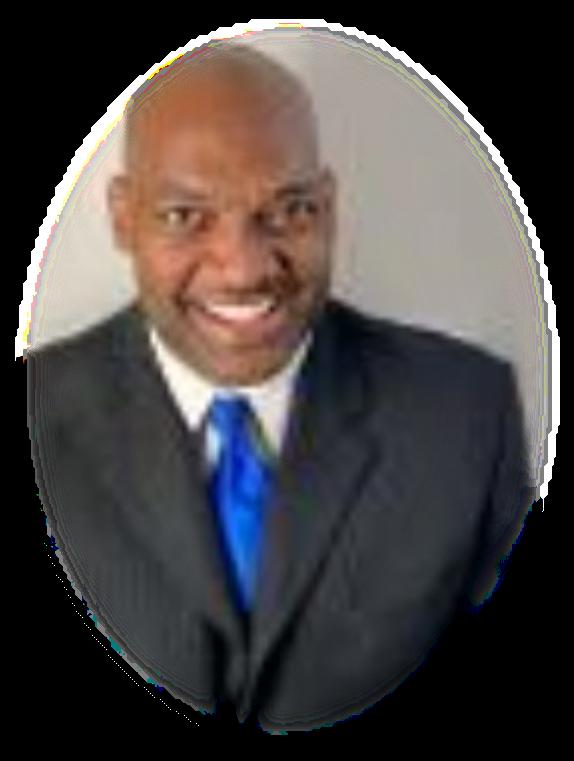
Wri
en by
BRAD BOWLING



One of the first things that young people learn as they climb into adulthood is that money is neces‐sary to survive. The pursuit of money is cri cal to success, and where you put your money can mean the difference between losing it or protec ng it. If you are lucky, you will have a chance to work with men like Wesley Gillespie.
Gillespie, the President of ERIEBANK, a community bank that has branches in Ohio and Pennsylvania offers a differ‐ent type of banking. It s ll offers banking with a personal touch. In fact, if you speak with Gillespie, he will tell you that banking touches everything and that community banking is the only way to go. His belief systems might have something to do with how he was raised.
Gillespie was born in Harlem, New York, in the mid-six es when life was real, and mes were tough. Born with a twin brother, Presley Gillespie, they learned very early that he and his brother would have to grow up faster than most. The touch of life im‐pacted both brothers when their mother passed while they were two years old.
Their father, who was a much older dad by the me they were born, knew he was going to need help raising the twins, and two older sisters, so an aunt from Philadelphia came to New York to help raise the brothers and their two sisters.
“Since my dad was older, he really couldn’t keep up with my brother and I in the big city, so we had the freedom to do what
we wanted,” Gillespie said.
And like any typical twins the two were inseparable their en‐re childhood. Whether they played s ckball in the street or opened fire hydrants to stay cool in the summer, they relied on each other for friendship and companionship, as well as judgement and decision making. It was around the age of ten when they both stumbled on a love for banking.
“When we were growing up, we did not have much money at all. So, we did the best we could with what we had. My broth‐er and I would see bankers dressed in nice suits, looking pros‐perous, so we decided at an early age that we wanted to be‐come bankers. It was as simple as that,” Gillespie said.
Another touch of something to impact how they saw life. As the two grew older their father decided to get them out of the city and moved them to a small town in Western Pennsyl‐vania called Farrell Pennsylvania, approximately 75 miles out‐side of Pi sburgh. This change meant that the boys went from subway rides, a concrete jungle, and apartment living, to the first home that their family ever owned, with green grass, which they loved. The change in environment was dras c but welcomed because it gave them more quality me with their father in an easy-going community.
“We went from having no car and hearing constant sirens, to needing a car and hearing the sounds of the country quickly.” Gillespie con nued, “My dad bought us a car, as we needed our own transporta on, but it was really for him because he later became legally blind and needed my brother and I to drive him around
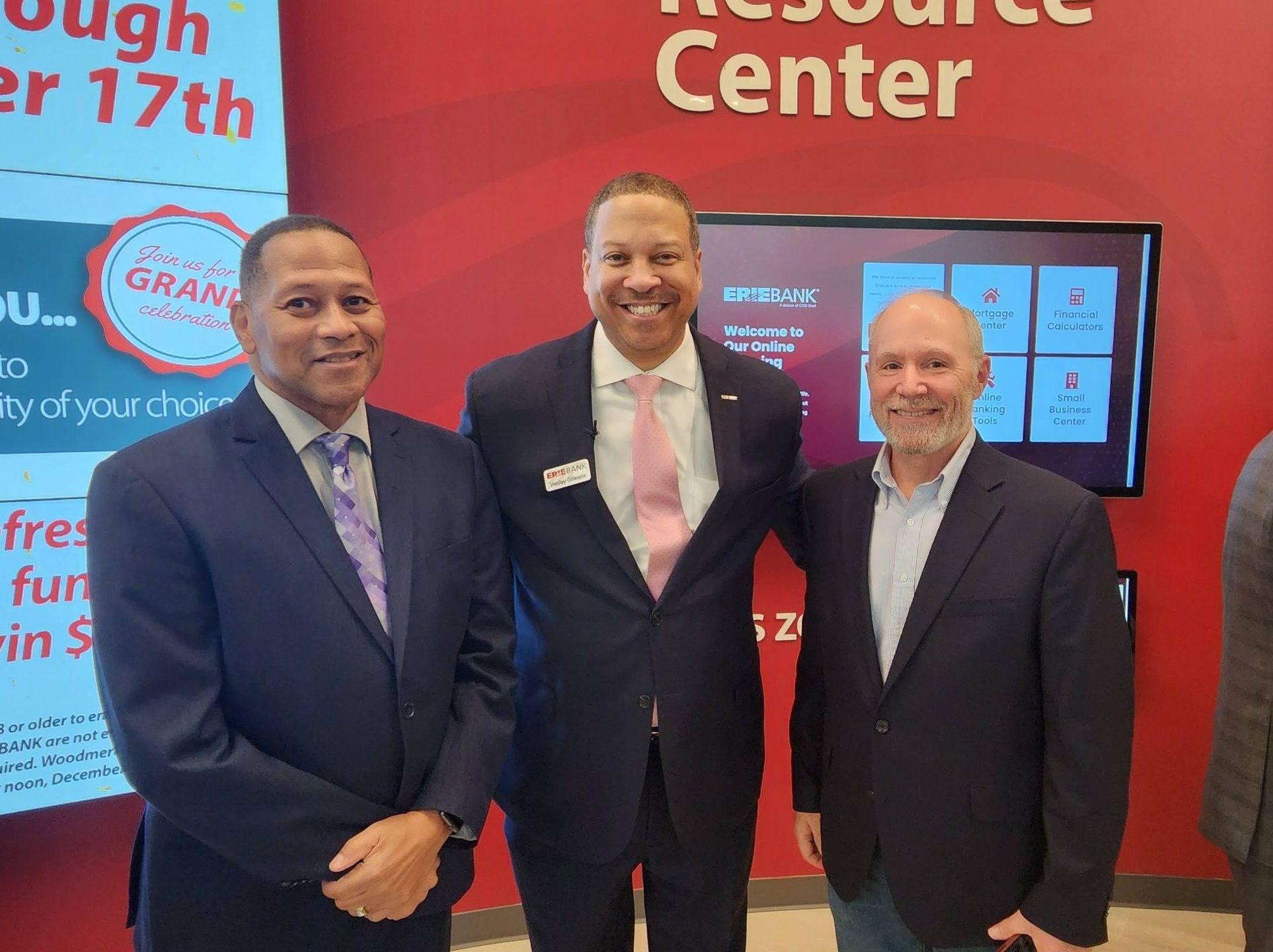
Gillespie’s father never learned how to drive a car but worked as a chef in downtown Manha an, which Gillespie admired his father’s work ethic. Gilles‐pie said his dad wore a suit to work every day, changed into his chef uni‐form, and put his suit back on to take the subway home. Gillespie and his brother admired their dad for working so hard, with li le financial reward. Living in Harlem, and Farrell, both had




their advantages and drawbacks, but Gillespie said he would not change a thing. Harlem will always be in his blood.
“I loved living in the city, but I also loved the peace and calm of small-town living,” Gillespie said. Being touched by both places was shaping the men that Gillespie and his brother were star ng to become.
While living in Farrell, they both were mentored by a local banker who took a liking to them and exposed them to the world of banking at an early age, growing up fast and becom‐ing part of who the boys were.
By the me they got to college, their father was in his late six es and slowing down. As Gillespie and his brother entered Youngtown State University, just across state lines, they were working hard to pay for school and to keep themselves clothed.
“A er my father became legally blind, we commuted back and forth to school so we could stay close to him and take care of him and their Aunt Jean, who raised them,” Gillespie said.
They both got a great educa on while in school and even carved out enough me to start a rap group. Rhapsody was a group that consisted of three guys who met in college, had a love for hip hop, and formed a group. They became very wellknown and even performed at the Apollo Theater in NYC sev‐eral mes.
Another touch by life for the boys was to turn their ability to mix beats into a full-blown show where they had fans and a huge following. But as rap began to change in the early nine‐ty’s, it grew away from the dance beats and rhymes to a different sound, therefore they moved away from it, and to focus on finishing college. Gillespie returned his sight to his first love of banking and was blessed to get a job upon gradu‐a ng from college into a banking management trainee pro‐gram. Gillespie learned as a trainee to listen and learn.
As a banker, Gillespie went from having life touched him, to being able to touch other people’s lives.
“One of the best things about being a banker is that I get a chance to help other people. Banking touches everything. We get a chance to work with people from all walks of life, we get a chance to provide loans and funding to all types of business‐es, and it really means the world to me to see people suc‐ceed,” Gillespie said.
Six years ago, Gillespie joined ERIEBANK as the Regional Presi‐
Gillespie with the City of Cleve‐land Mayor Jus n Bibb.

dent for Ohio, and recently became the President of ERIEBANK, a community bank that operates in Ohio and Pennsylvania. ERIEBANK is a division of CNB Bank, which operates in four states. The mission of the bank is to make loans and to provide financial solu ons to real people in their communi es. This means that if you bank with ERIEBANK you will experience.
No
red tape and faster loan decisions
You will work directly with bank decision-makers
Your personal lender will work with you from beginning to end
Where everyone is accessible to anyone, including the bank president
Gillespie reminds anyone he talks to about the need for them to have a real working rela onship with their bank. And that means having a real working rela onship with their banker.
Most people understand that they need to use a na onal Bank for some of their banking. So, if something happens while you are in Paris, your na onal bank addresses the problem in realme. But Gillespie also underscores the need to be able to walk into a community bank, shake hands with someone who knows



you personally, and will look at more than your FICO score.
“You are not just making a loan to a business, you are making a loan so that business can buy equipment, so that business can employ people, and pay people’s salaries. And those people can go home and take care of their families,” Gillespie said.
Gillespie drives the message that banking touches everything be‐cause if it is done right, it really does touch everything. It impacts communi es and those who live and work in the community. His goal is to help as many companies as possible realize their mission to become Fortune five hundred organiza ons or build up the business to leave a legacy.
There is no ques on that life touched Gillespie in many special ways to make him the man he is. The great thing about him is the fact that he gives life back as much as it has offered him. A touch‐ing journey for sure. ●





THE ART OF BORROWING MONEY
At one point, or another, everyone has been there. Follow these steps if you find yourself a li le short on cash and need to ask to borrow money.
Borrowing money. It’s the fine art of asking someone else to give you what you don’t have with the promise of returning it later usually with a li le extra. The concept is simple, but the execu on o en feels like you’re audi oning for a role in a drama where the stakes are your rela onship with the person you’re borrowing from.
The first rule of borrowing money is, of course, ming. You must approach your poten al lender at just the right moment. Too early, and they might think you’re planning a Ponzi scheme; too late, and you’re stuck ea ng instant noodles while your phone vibrates with overdue no ces. The sweet spot is when they’re feeling par cularly generous, perhaps a er a bonus, a tax refund, or a par cularly good day at the casino. This is your window.
Now, when you ask to borrow money, you must have a reason. "I need it" is not a reason unless you're borrowing from your pet iguana, and even then, you're probably not ge ng it back. You need to have an elaborate story. It could be for an emergency. “It’s for the hospital!” you say, with a drama c hand to your fore‐head. “My pet hamster, Sir Whiskers, is gravely ill, and the only cure is a rare form of hamster CPR.” Or, if you’re going for a more socially acceptable reason, you could try, “It’s for something ab‐solutely essen al: a new phone charger. The one I have is just too slow.”
Once the request is made, it’s me to enter the nego a on phase. If you’ve borrowed money before, you’ll know that this is where the fun begins. You start with the humble “I just need a li le,” but by the me you’re done, you’ve somehow managed to
A COLUMN WRITTEN BY CHATGPT

Wri en by CY BORG
Cy Borg is an ar ficial intelligence writer. Using Open A.I., Cy responds to various prompts with fully-qualified answers using the internet and technology.
ask for a sum that could finance an impromptu vaca on to the Bahamas. “I swear I’ll pay you back next week,” you say, with a gleam in your eye, knowing full well that “next week” might actually translate to “next season” in your universe.
The lender, however, will always give you that look. The “I’m not sure if I trust you, but I don’t want to seem like a jerk” look. It’s a mixture of empathy and cau on, like a cat staring at a mouse that it’s not quite sure it wants to catch. At this point, the best you can do is offer up your best poker face and a well- med “I swear on my grandmother’s kni ng nee‐dles” (even if you know she’s never kni ed in her life).
The most beau ful part of borrowing money is the repay‐ment plan. This is where your crea vity truly shines. You promise to pay them back with interest, but let’s be honest, that’s a long way off. In reality, you’ll pay them back eventu‐ally maybe. A er all, when you don’t have money, it’s really just the universe’s way of telling you to take a break from financial responsibility. The lender, of course, will be‐lieve you because they want to believe you, but deep down, they know you’re as likely to repay as a raccoon is to return stolen snacks.
In conclusion, borrowing money is an exercise in charm, ne‐go a on, and occasional deceit. But at the end of the day, it’s also a testament to human connec on. Because if you can borrow money and s ll be friends at the end of it, then you’ve truly mastered the art of borrowing. Or, at the very least, you’ve convinced someone to lend you money again next me. ●



THE TRUTH UNSEALED
Mark Greene discusses what it takes to become a Navy Seal and the techniques that can be used in everyday life.

SEALs are notorious for telling rive ng stories without a shred of emo on. There's a good reason for that. They've been trained to keep their emo ons at bay-to be hard-so they can accomplish seemingly impossible missions. Rarely do you find a Navy SEAL who is willing to be vulnerable and share from the heart.
Mark Greene is one of those SEALs. For years, he didn't un‐derstand how emo ons played a part in decision-making. He had trained and worked under such extreme condi ons that there was no room for subjec vity. Logic dominated his thoughts.
That is, un l he suffered an accident that ripped away his outer seal of protec on. What he experienced was unparal‐leled. As a result, Mark became unsealed.
The transi on from college athlete to college dropout, then from SEAL training to enlisted SEAL, and from sniper to civil‐ian proved more painful than exci ng. But one thing re‐mained constant ... Mark never suffered alone.
Through the process of naviga ng his own difficult transi‐ons and helping other veterans with theirs, Mark has dis‐covered that there are six phases of transi on, and each phase follows a predictable pa ern.
● ISOLATION
● INDULGENCE


● COCOONING
● EMERGENCE
● GRIEF
● RESOLUTION
By embracing these phases, locking in your anchor points, and adap ng each one to your own specific situa on, you can ease the pain of change, knowing that the next phase is coming soon.
Everything you want-life-giving rela onships, genuine happiness, a successful business, peace of mind-awaits on the other side of the struggle. UNSEALED will light the path. ●



WISDOM IS THE PRINCIPLE

Sharon Murphy Williams has been teaching the art of mastering credit literacy to those who need it for 25 years through the Phe’bes Founda on. In 2025, the founda on is set to impact those who need financial help on a whole new level. by HAROLD
Throughout the history of Blacks in America, the one thing that seems to always hinder progress is the lack of credit. As Blacks work to recover the momentum from the lost me due to slavery, the lost opportuni‐ty of the great migra on West, and the stolen oppor‐tunity to get forty acres and a mule, the struggle to build credit s ll alludes to many.
For Sharon Murphy Williams, the chance to do something about it has become her mission and life’s work. Williams started her career as a licensed credit strategist at Dun & Bradstreet.
Dun & Bradstreet is a global company that provides business in‐telligence and data analy cs, essen ally ac ng as a leading source of informa on about businesses worldwide, including their creditworthiness, financial health, and opera onal details, which allows companies to make informed decisions regarding risk management, sales, and marke ng strategies based on this data.
While working at Dun & Bradstreet, Williams learned that the true power of wealth comes from having good credit, not having money. Her climb up the corporate ladder led her to start her own founda on to help those who need help understanding their rela onship with their credit.
“We don’t teach people that what they do is wrong we teach them that there might be another way to do it,” Williams said.
COMMONS
Credit has always been a determining factor in one’s ability to get a loan from a bank or a business loan from an ins tu‐on. Blacks historically have always struggled with building enough posi ve credit to be lendable too by major financial organiza ons. Here is a breakdown of the median credit by race:
Race Median credit score
• White 727
• Asian 745
• Hispanic 667
• Black 627
• Na ve American 612
With credit being necessary to purchase a home, some‐mes star ng a business, or funding a venture, Blacks have been kept out of opportunity to build wealth, thus keeping them at the bo om of the income gap in America.
Williams understands this and has pledged her me and



energy to do something about it.
“Financial illiteracy raises our poverty rate; it raises our crime rate. It raises our housing insecurity,” Williams said. “Being a be er financial steward minimizes a whole lot of social deter‐minants that destroy a community, which destroy a people, and we are not just talking about genera onal poverty, we are talking about historical poverty.”
Williams understands that money answers all ma ers. The ability to get and obtain credit is the founda on of anything that someone is a emp ng to do. She went on to comment that whether Harris won or not, Blacks are at a crossroads for

to do to obtain a loan or financing, only to later allow them‐selves to fall back into the trap of not taking care of business.
The Phe’be Founda ons’ sole goal is to help people create wealth through credit and maintain good credit a er they have reached a certain status.
Williams wants Blacks to play the part, not look the part. She warns of buying things that don’t match their goals. She wants people to work hard and learn as much as they can about how credit works.
She also goes on to share her thoughts on thriving in any busi‐
Williams wants people to learn that credit is just your name. It is simply your word. Are you going to do what you said you are going to do; can you be trusted?
helping themselves gain the financial foo ng they need to prosper during any presidency.
Williams teaches that the first thing Blacks need to learn is how to master the art of understanding their rela onship with credit.
“We as Black people are really good at mastering business, but we need to learn how to master our own business,” Williams said.
Williams wants people to learn that credit is just your name. Essen ally, it’s simply your word: Are you going to do what you said you’re going to do; can you be trusted? “What did you say you would do to get that loan? Did you honor your word?” Williams asked.
She warns that many mes people will do whatever they have
ness or poli cal environment. Black businesses must grow in either a Democra c or Republican-led environment. Williams and the Phe’be Founda on plan to use 2025 to introduce its clients to the process of growth in any situa on.
Her work with consumers is helping people all over the coun‐try change how they view money and how they spend their capital. “I think we need to understand that money is power, but credit is powerful. One has flex and the other has strength,” Williams said.
“Money is good, but the flex gives you the ability to take the money you have in the bank and keep it, so you can use bor‐rowed money to create even more wealth.”
Williams’ advice comes at a me when good financial decision -making is the difference between life and death. ●



TRADING UP TO TECH
Many perceive “tech” as simply computer systems and so ware design. However, there is also tech in the skilled trade industry.




We all must have physical devices, vehicles, compo‐nents, and everyday components that support our infrastructure in innumerable ways. Of course, there’s so ware designed to operate or build such physical components, but it takes skilled, hands-on trade knowledge to envision, ini ally create, and then implement such components.
The upshot is that physical labor is extremely necessary when it comes to design and building. We’ve not reached the point of tech‐nological advancement where machines can design and build new machines and structures on their own, such as Cyberdyne Systems did in the movie Terminator. We’re talking about the skilled trade industry that’s considered non-tradi onal educa on, educa on that doesn’t require a ending college or university.
Skilled technical trades include welders, carpenters, masons, plumb‐ers, pipe fi ers, machinists, mechanics, steel workers, auto workers, construc on laborers, and plenty of other non-tradi onal, nondegreed, technical trades people. They, in a sense, keep the machin‐ery of everyday life greased.
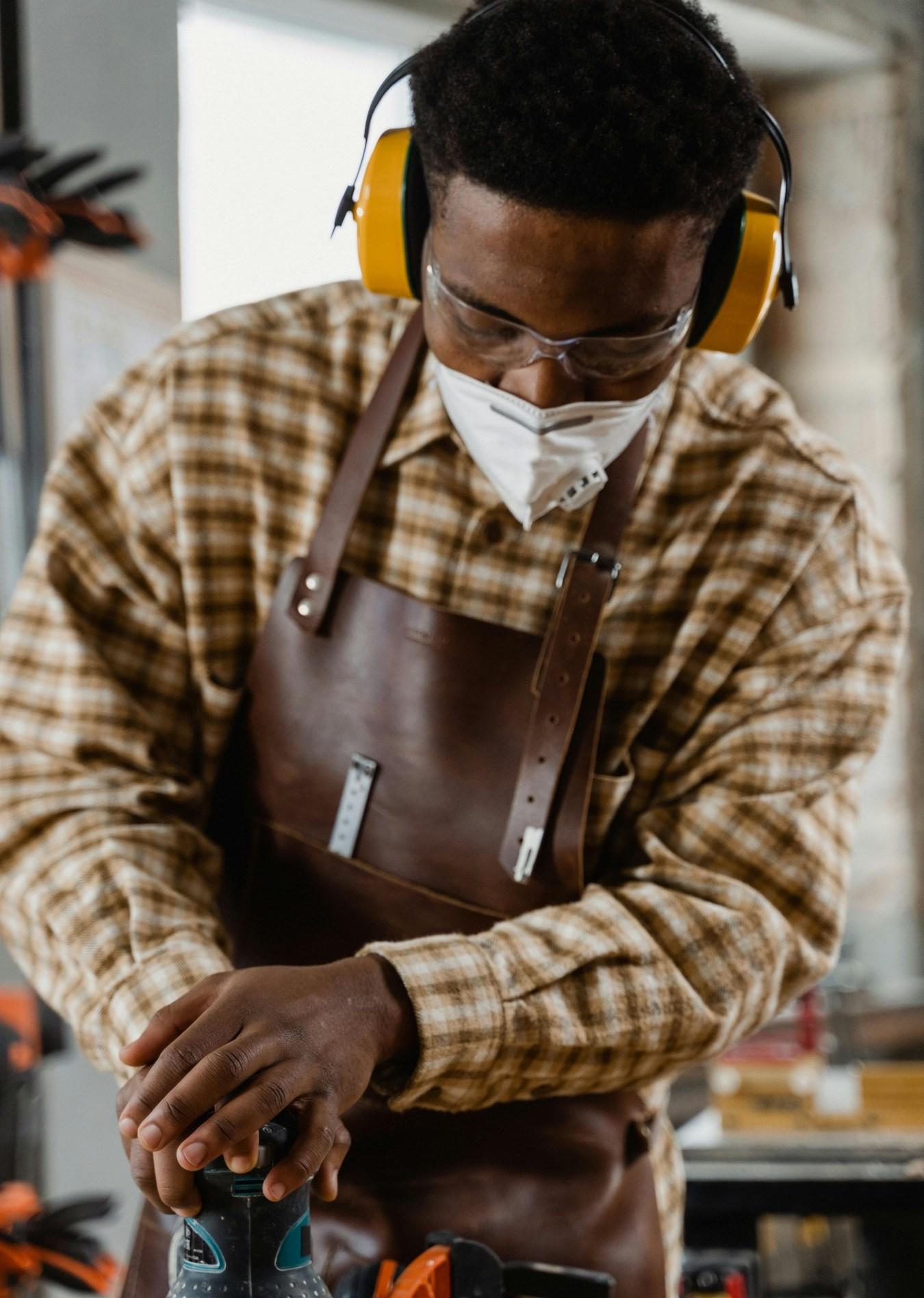
A skilled trade job is usually a posi on pursued by some‐one taking classes to learn a specific skill set for a par cu‐lar job. They could also acquire needed skills through onthe-job training such as with appren ceships. A person usually completes their training by taking voca onal courses, non-tradi onal college courses, or other special‐ized training where they may obtain a cer ficate or li‐cense to operate. They are then considered professional‐ly qualified in their field. Training or schooling for skilled trade jobs can take anywhere from three months to four years to complete depending on the trade skill.
There is now a great push today for recrui ng in the skilled trade technical industry because of the tremen‐dous shortage of personnel. Research has proven that people who learn skilled technical trades make up to 30 percent more money than the average first-year college graduate and they’re almost guaranteed a job. Finan‐cially, one’s personal investment cost is li le to nothing, and there’s the possibility of having no debt upon gradu‐a on or moving on to the next level of the skilled trade
In the future, the need for people with a strong set of specific technical trade skills will steadily grow. The US Bureau of Labor Sta s cs has es mated that the job out‐look for various skilled trade posi ons will increase over the next ten years. Some of the leading skilled trade la‐bor people who have remained in demand in the past are projected to remain steadily in heavy demand.
Other skilled trade posi ons will grow rapidly as the need for workers will increase due to higher demand for their specific skills. It simply comes down to supply and de‐mand. Since the demand of these skilled trade workers ranges from steady to increasing more quickly than oth‐ers, the Department of Labor predicts that the demand for these posi ons will range from 4 percent to 30 per‐cent over the next decade.
One has to ask what is driving the demand for skilled la‐bor. There are several reasons:
• There’s been a significant boom and speed-up in con‐struc on, which has increased the need for tradespeople.
• Older tradespeople have reached re rement age and are aging out, meaning the workforce will need replace‐ments.
• Finally, technology is emerging faster and faster and
Tech jobs exist within all types of businesses.



the skilled trades must keep up with it.
One of the immediate challenges is how a person can learn a skilled trade and make money right a er high school or a dra‐ma c career change. There are several programs including union workshops, technical schools, mechanic schools, and numerous others. For example, to be an auto mechanic for luxury vehicles such as BMW or Mercedes Benz. Both manu‐facturers have exclusive tech schools for developing outstand‐

ing auto mechanics. The training lasts a year, and then new‐ly cer fied technicians are placed at one of the many BMW or Mercedes Benz dealerships. Salaries start at $70,000 per year, which is dependent on the area where the tech resides or the loca on of the dealership.
One of the main sources for training in the skilled trade in‐dustry is, of course, unions. Unions provide all sorts of train‐ing for different trade professions. For instance, the con‐struc on industry. North America’s Building Trades Unions is reported to have a world-class registered appren ceship program where they train workers to become highly skilled, six-figure earning workers through a debt-free, technologi‐cally advanced educa on. They are earn-as-you-learn pro‐grams that also pay family-sustaining wages and provide health care coverage and re rement benefits from day one when the training starts.
The construc on registered appren ceship union sponsored programs supplies demand in the US for top-rated American


workers to build roads, bridges, schools, water and energy sys‐tems, and the cri cal infrastructure that keeps America safe and very compe ve. These skilled construc on worker training pro‐grams are found in every state and almost every congressional district. Registered appren ceship programs can provide years of the best construc on training in the business, equipping local workers with top-notch trade skills for fulfilling, lifelong, middleclass careers in the building trades.
Of course, there are several other means of obtaining skills in a technical trade besides the unions. However, there is a difference between choosing a trade school and choosing a union to a ain training. Skilled trade workers report that a ending trade school independently is much faster than joining and being trained by a union. However, through union training, a person is be er protect‐ed and more prepared for work challenges.
Let’s not forget about the military, which also provides the same as technical trade schools and a chance to con nuously use one’s skills while serving.
One of the skill determina ons for the military is called the ASVAB test. This test is incredibly important in determining which hightech trade field a recruit can learn and perfect while serving. The
ASVAB book for prac ce can be found online or in bookstores. Recruiters can also relate what score is need‐ed to be able to get the desired military occupa onal skill (MOS).
It’s a tough decision as to which trade to pursue and how to achieve the correct training. In the long run it’s a formi‐dable alterna ve to a ending college or university. The overall goal is to be prosperous and to take care of oneself and one’s family.
The skilled trade industry has a large array of posi ons that an individual can be trained in that don’t require a college degree. A person can always train first and go back to school later to a ain a degree in the field or industry of their choosing, expand their technical knowledge base, and upgrade their marketability.
These trades are cri cally needed to transform, improve, and sustain our country’s fundamental infrastructure upon which we all rely so heavily. The best of luck to those as they endeavor to learn, excel, and flourish in the skilled trade of their choice. As Spock says in Star Trek, “Live well and prosper!” ●


DIVINE-9THE
SHARRI ROPER COMERNISKY
Sharri has been a proud member of Delta Sigma Theta Sorority since 1980. She pledged at Kent State University and currently serves as an ac ve member of Delta Sigma Theta, Cleveland Alumnae Chapter.
Sharri is a human resource execu ve and a cer fied execu ve coach, who has held various human resources leadership roles at Sherwin Williams, Akron Children’s Hospital, and GE Ligh ng. She currently works for Summa Health System and leads all compensa on, benefits, and total rewards ini a ves.
Sharri currently serves as a Board Trustee for the Ronald McDonald
Get to know people who are making a difference in their organiza ons and in their careers.
house of Cleveland and Akron chapters.
She is also a member of the Cleveland Chapter of the Northeasterners and the Kent Area Chapter of the Links Incorporated.

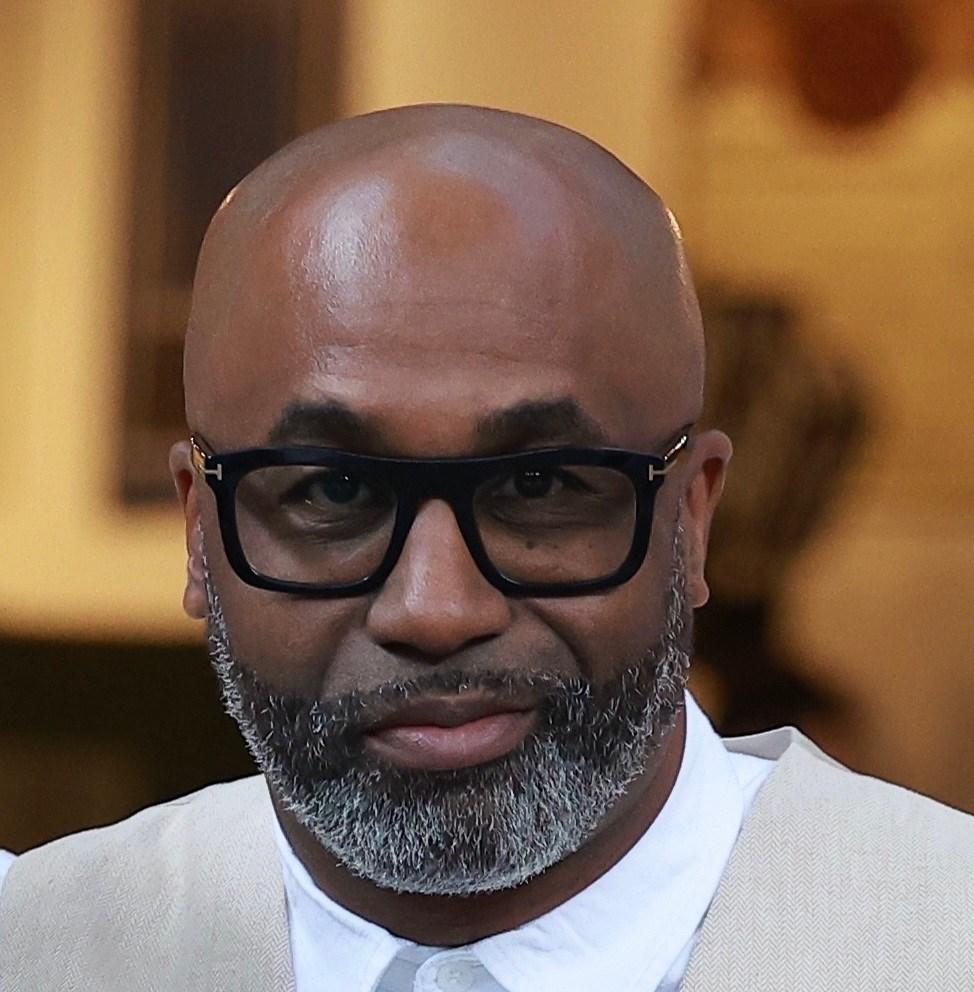
ERICKA AMES OWENS
With 33 years of dedicated service, Ericka Ames Owens is a proud Silver Soror and Life Member of Alpha Kappa Alpha Sorority, Incorporated®. Ini ated into the Alpha Lambda Chapter on June 2, 1991, at The Univer‐sity of Toledo (UT) in Toledo, Ohio, Ericka has been deeply commi ed to the sorority’s mission since her college years. A er gradua ng from UT in 1993, she con nued her involvement as a general member before joining the Alpha Omega Chapter in Cleveland, OH.
Currently, Ericka is honored to serve as Chief of Staff in the “Greater Together” administra on under the leadership of Great Lakes Regional Director, Gwendolyn L. Kirtley. In addi on, Ericka has recently been elected President of CLE Pearls, an official Interest Group of Alpha Kap‐pa Alpha Sorority, Incorporated®.

ERIC TERRELL PATRICK, SR.

Eric Terrell Patrick, Sr., a Cleveland na ve, exemplifies faith, char‐acter, and service. A Grambling State University graduate, he has shared 27 years of marriage with his wife, Xaviera, raising two children, Chase and Shanna.
With a 25-year career in pharmaceu cal sales, Eric has earned numerous accolades, including MVP and character awards. A 2023 ini ate of Omega Psi Phi Fraternity, Inc.'s Zeta Omega Chapter, he launched a Mental Health Monday ini a ve to foster discussions on life challenges. Eric enjoys the arts and bourbon in his spare me, serving on the Cleveland Interna onal Film Fes ‐val board and co-founding the Subourbon Brothers.

DR. ROBERT MORRIS JR.
As a college Social Science professor, Dr. Robert Morris, Jr. delivers lec‐tures and provides mentorship both within academia and through his nonprofit, South Florida Village. Through this organiza on, he collaborates with community leaders to offer college readiness programs and mentor‐ing support to students in Miami-Dade and Broward coun es. Commi ed to advancing social jus ce, he ac vely works to dismantle barriers that threaten democracy.
Dr. Morris serves on several local, state and na onal organiza‐ons including the Na onal Associa on for the Advanced of Colored Peo‐ple (NAACP), Color of Change, Campaign for Black Male Achievement, Phi Beta Sigma Fraternity Inc., Broward County Sheriff's Office Social Jus ce Task Force, Na onal Council on Educa ng Black Children, and a host of others.



LEAVE IT UP TO COXX MUSIC

Atlanta recording ar st, Ms. Coxx, storms on the scene with her cap va ng lyrics and sensa onal stage presence.
Mz. Coxx a dis nguished ar st known by her professional moniker, Mz. Coxx, or affec on‐ately referred to as Coxx or Coxxy. Born on January 30th in Atlanta, Georgia, she has spent her en re life in Decatur, GA, cul va ng a deep connec on to her roots.
In her forma ve years, Mz. Coxx harbored aspira ons of becoming a lawyer, judge, or pediatrician. Rooted in a cultural iden ty that seamlessly blends South‐ern charm with Northern influences and a touch of Panama‐nian heritage, she embodies a unique and diverse back‐ground.
Mz. Coxx finds joy in various hobbies, including cooking, quality family me, con nuous learning, and bowling. Her travel preferences lean toward tropical des na ons, re‐flec ng her love for water.
Mz. Coxx has been performing since age 16 , and has since been able to follow her dreams and tour across the United States.
Mz. Coxx made her ac ng debut in 2023, and since then has made several film appearances on Tubi, Amazon, and Pea‐

cock. She can be found in Hot Girlz, For the Gram, and Raccades, with music scored on each!
Mz. Coxx aspires to become a household name and known for making a posi ve impact and meless music. Mz. Coxx is currently char ng on DRT top 200 Chart on independent and overall radio.
Mz. Coxx currently has over 100 thousand overall streams on Spo fy and Apple Music and ranges from the United States to the United Kingdom, Brazil, Germany. ●


FASHION

When the weather is less than perfect, what you have on your feet can keep you dry and make a fashion statement at the same me. A wardrobe shopper,
en by LARON HARLEM
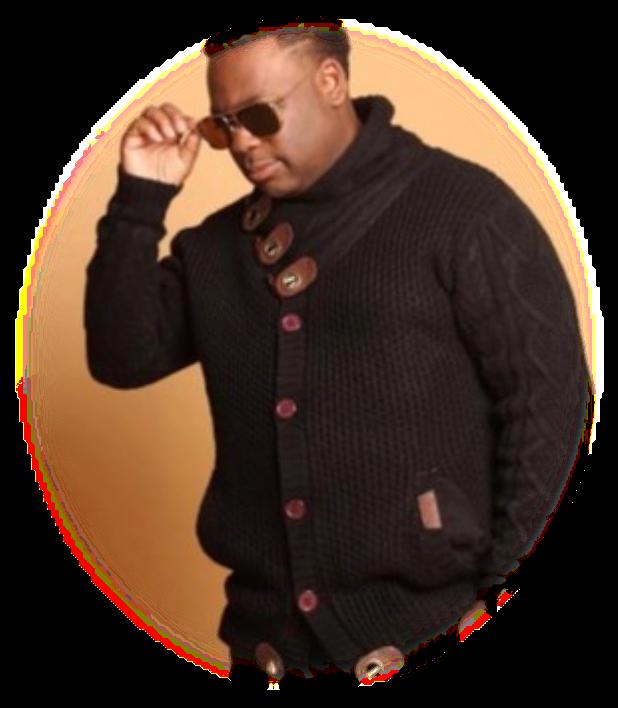
Boots are all the rage in areas where the ground is testy. Try changing the laces to add a bit of originality to the ou it.






and knee high boots go together whenever they are worn. They make a simple pair of jeans stand out along with the person who is wearing them.








Warmth is the goal when trying to stay dry. Different textured boots ad a bit of flare as well.

